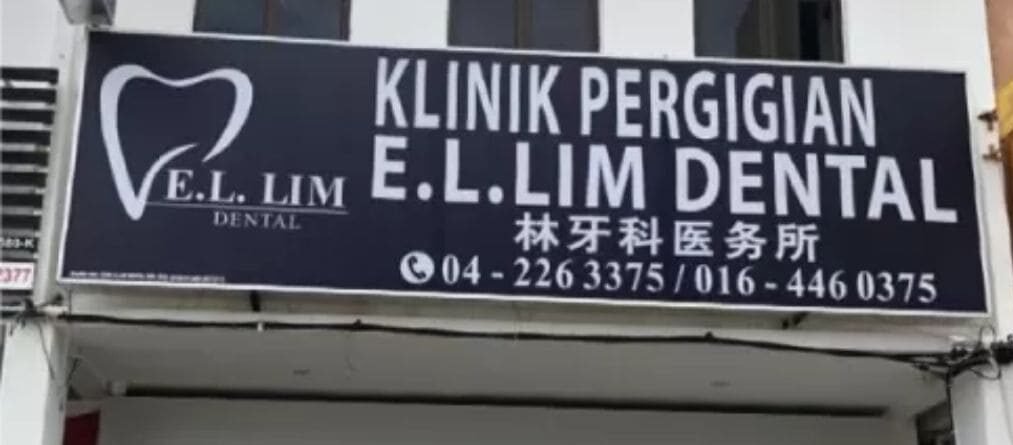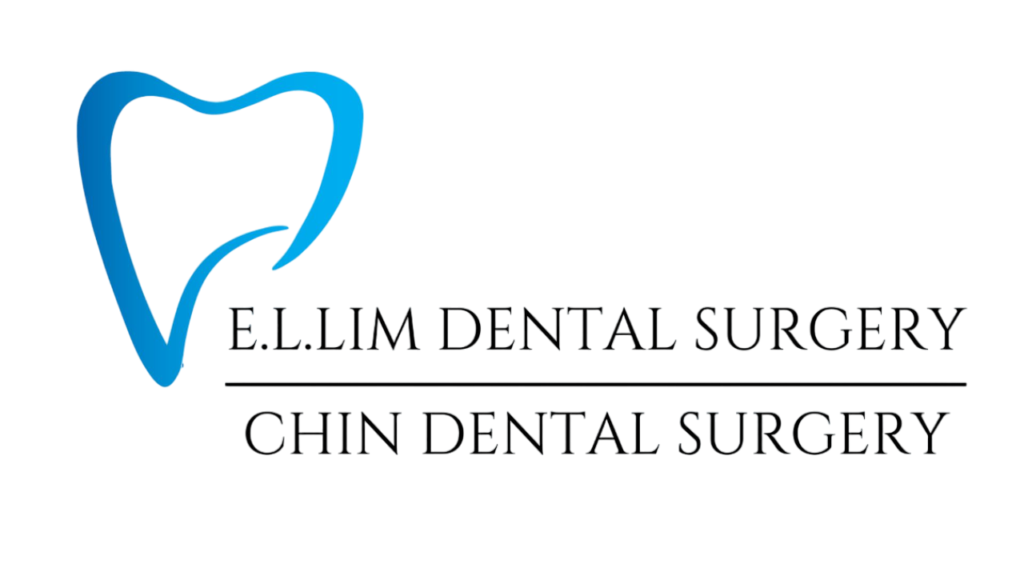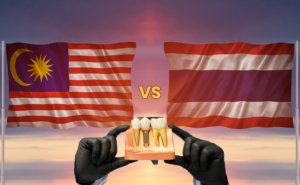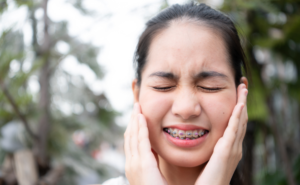If you’re a new parent staring at your baby’s gummy smile, wondering, “When do babies start teething?”, you’re not alone. Teething is one of those milestones that sneaks up on you, often when you least expect it. Some babies sail through it, while others experience days of fussiness and discomfort. Either way, it’s an important stage that marks the beginning of your child’s journey into solid foods, speech development, and lifelong oral hygiene.
As soon as that first little tooth appears, it’s a good idea to schedule a visit to the dentist. A quick dental check-up helps ensure that everything is coming in properly and gives you peace of mind that your baby’s smile is on the right track from the start.
When Do Babies Start Teething?
Teething usually begins around the 6-month mark, but just like crawling or walking, it’s different for every baby. Some infants start as early as 3 months, while others may not see their first tooth until after their first birthday. It’s all within the range of normal.
That said, understanding the typical teething timeline can help you feel more prepared and less caught off guard.
When Will My Baby Start Teething?
The most common window for teething to begin is between 4 to 7 months of age. Most babies’ first teeth to appear are the lower central incisors – the two tiny bottom front teeth. Once these erupt, the upper central incisors usually follow.
So if you’re asking, “When will my baby start teething?” and your child is nearing the 4-month mark, keep an eye out for early signs like drooling, chewing on fingers, and increased fussiness.
Baby Teething Chart: What to Expect
Here’s a general breakdown of when each group of baby teeth might appear:
- 6 to 10 months: Lower central incisors
- 8 to 12 months: Upper central incisors
- 9 to 13 months: Upper lateral incisors
- 10 to 16 months: Lower lateral incisors
- 13 to 19 months: First molars
- 16 to 23 months: Canines
- 23 to 33 months: Second molars
By the time your child turns 3, they’ll typically have a full set of 20 baby teeth.
What If Baby Teeth Are Not Coming Out?
Some parents worry when their baby’s teeth seem “late” in showing up. If your child hasn’t sprouted a tooth by 12 to 14 months, it’s worth mentioning to your dentist during a check-up. Delayed teething isn’t always a cause for concern, but in rare cases, it could be linked to nutritional or developmental factors.
If you’re unsure whether your child’s teething is on track, a quick visit to your local dental clinic in Bayan Lepas can offer clarity and reassurance.
Baby Teething Symptoms Every Parent Should Know
 Teething isn’t just about new teeth pushing through the gums; it’s often accompanied by a mix of symptoms that can leave babies (and parents) feeling a little overwhelmed. Some babies breeze through the process with barely a whimper, while others experience days of crankiness and discomfort. Knowing what’s normal and when to worry can help you respond calmly and confidently.
Teething isn’t just about new teeth pushing through the gums; it’s often accompanied by a mix of symptoms that can leave babies (and parents) feeling a little overwhelmed. Some babies breeze through the process with barely a whimper, while others experience days of crankiness and discomfort. Knowing what’s normal and when to worry can help you respond calmly and confidently.
Common Signs Your Baby is Teething
Here are the usual suspects when it comes to teething symptoms:
- Drooling: Expect a lot of it, so much that your baby’s chin might develop a rash if not wiped frequently.
- Chewing on everything: Fingers, toys, your shirt. If they can fit it in their mouth, it’s fair game.
- Irritability: Sore gums make babies fussier than usual, especially at night.
- Disrupted sleep: Teething discomfort can wake them up more often.
- Red or swollen gums: The area where a tooth is coming in might look inflamed.
These signs usually show up a few days before a new tooth breaks through and tend to improve once it erupts.
Severe Symptoms That Need a Dentist
While teething can cause mild discomfort, it shouldn’t make your baby miserable. Some signs point to issues beyond normal teething and may require a dental or medical visit:
- High fever (above 38°C)
- Diarrhoea or vomiting
- Extreme irritability or inconsolable crying
- Refusal to eat or drink
- Unusual rashes around the body (not just the mouth)
If you’re seeing symptoms like these, don’t just chalk it up to teething; it’s best to consult your doctor or schedule a quick dental check-up to rule out any underlying issues.
Teething Remedies That Work
There’s no one-size-fits-all solution when it comes to soothing a teething baby, but there are a few proven methods that can ease their discomfort and help you both get a little more rest. Whether you’re using safe baby teething toys or thinking about trying a teething gel, it’s important to know what’s effective and what to avoid.
Are Baby Teething Gels Safe to Use?
Many parents reach for baby teething gel, hoping for quick relief, but not all gels are created equal. Some over-the-counter products contain ingredients like benzocaine, which can be dangerous for infants and have been linked to rare but serious side effects.
So, what’s safe?
- Look for teething gels specifically formulated for babies, ideally ones recommended by your paediatrician or dentist.
- Avoid anything that contains numbing agents unless prescribed.
- In some cases, a chilled teething ring or a cold spoon may work just as well, and without the risk.
If you’re unsure, always ask your dentist before introducing any new product. A quick visit to a dental clinic in Bayan Lepas can give you peace of mind and tailored recommendations based on your baby’s needs.
Baby Teething Toys That Help Soothe Pain
Teething toys aren’t just adorable, they’re designed to provide counter-pressure on sore gums, which can be incredibly soothing.
Here’s what to look for:
- Soft silicone or rubber materials (BPA-free)
- Chillable options: Some toys can be refrigerated for extra relief
- Textured surfaces: These help massage the gums and distract your baby from the pain
Avoid:
- Toys that are too hard or made from cheap plastic
- Anything with small parts or beads that could be a choking hazard
- Items that aren’t easy to wash or sterilise
Keep a few clean toys handy and rotate them as needed. It might take a bit of trial and error, but most babies find at least one that becomes their go-to comfort item during teething phases.
How to Brush Baby Teeth the Right Way
 Once that first tooth breaks through, it’s time to start brushing, no matter how small it is. Establishing good oral hygiene early doesn’t just prevent cavities. It also builds habits that’ll stick with your child for life. Many parents wait too long or aren’t sure how to begin, but the truth is, brushing baby teeth should start from the very first tooth.
Once that first tooth breaks through, it’s time to start brushing, no matter how small it is. Establishing good oral hygiene early doesn’t just prevent cavities. It also builds habits that’ll stick with your child for life. Many parents wait too long or aren’t sure how to begin, but the truth is, brushing baby teeth should start from the very first tooth.
When to Start Brushing Baby Teeth
You don’t need a full set of teeth to start brushing. The general rule? Start brushing as soon as the first tooth appears, usually around 6 months. Before that, you can use a clean, damp cloth to gently wipe your baby’s gums after feeding.
Choosing the Right Toothbrush and Toothpaste
Picking the right tools makes brushing easier and more effective.
- Use a baby toothbrush with a small head and soft bristles.
- Choose toothpaste that’s fluoride-free if your baby is under 18 months, as they’re likely to swallow it.
- For toddlers above 18 months, a smear of low-fluoride toothpaste is usually safe, but always follow your dentist’s advice.
Replace the brush every 3 months or sooner if the bristles look worn.
How to Brush Baby Teeth Properly
Here’s a simple routine to follow:
- Sit your baby on your lap, facing away from you.
- Gently lift their lip to see their teeth.
- Use small circular motions and cover all sides of each tooth.
- Aim for twice a day. Especially after the last feed before bedtime.
At first, brushing might feel more like a wrestling match. That’s normal. Keep it quick, positive, and consistent. Some parents even sing a little brushing song or let their baby “brush” a toy’s teeth at the same time to make it fun.
Should Kids Use Toothpaste?
If your child is under 18 months, stick to a damp brush or a smear of fluoride-free toothpaste. After 18 months, you can begin using a rice-grain-sized amount of low-fluoride toothpaste.
Just make sure they don’t swallow it, which is why supervision is key at this age. Always guide their hand if they want to try brushing by themselves.
What About Flossing and Mouthwash?
- Flossing: Once two teeth touch, flossing becomes part of the routine. Use soft floss picks made for kids to make it easier.
- Mouthwash: Not recommended for babies and toddlers. Young children tend to swallow it, which can be harmful. Stick with brushing and flossing for now.
Encouraging Healthy Oral Habits from an Early Age
 It’s not just about brushing; building a strong dental routine early on can shape your child’s relationship with oral health for life. Good habits now make things easier down the road, from smoother dentist visits to fewer cavities and less dental anxiety.
It’s not just about brushing; building a strong dental routine early on can shape your child’s relationship with oral health for life. Good habits now make things easier down the road, from smoother dentist visits to fewer cavities and less dental anxiety.
Brushing Routine: Consistency Is Key
Babies thrive on routine, and dental care should be no different. Start by brushing twice a day: once in the morning and once before bed.
Tips to keep it consistent:
- Make it part of your baby’s bedtime ritual.
- Use a mirror so your baby can watch.
- Turn it into a game or sing a short song to keep them engaged.
Even if they resist at first (and they probably will), stay calm and positive. It gets easier with time.
Visiting a Dental Clinic in Bayan Lepas Early
The Malaysian Dental Association recommends that children see a dentist by their first birthday or within 6 months of their first tooth erupting, whichever comes first. That might sound early, but it’s one of the best things you can do to prevent dental issues down the road.
Here’s why that first visit matters:
- It helps identify any early developmental concerns.
- You’ll learn how to clean and care for your baby’s teeth properly.
- It creates a positive, stress-free experience for your child.
Looking for a friendly, family-oriented dental clinic in Bayan Lepas? Our team at Dentist Penang welcomes little ones and ensures they feel safe and at ease from the moment they walk in.
Frequently Asked Questions
While uncommon, some babies can begin teething as early as 2 to 3 months. These are often early signs of teething rather than the actual eruption of teeth. You might notice your baby drooling more or chewing on their hands. Most babies start teething around 6 months, but it can happen earlier or later depending on genetics and overall development.
Yes, baby teeth can absolutely develop cavities, and they need to be cared for just like adult teeth. Brushing should start as soon as the first tooth appears. Tooth decay in baby teeth can lead to pain, infection, and issues with future permanent teeth. Establishing good oral hygiene early, including avoiding sugary drinks and cleaning gums before teeth appear is key to preventing cavities.
Most babies have a full set of 20 primary (baby) teeth by the age of 2.5 to 3 years old. These teeth usually start falling out around age 6 and continue until about 12 years old. If you’re wondering why baby teeth are not coming out on schedule, it’s best to consult a paediatric dentist to ensure there are no underlying issues such as retained roots or crowding.
Early baby teething symptoms include increased drooling, irritability, gum rubbing, and a sudden urge to bite or chew objects. Some babies may also have mild temperature increases or disrupted sleep. These signs often appear weeks before the first tooth erupts. Keep an eye out for these behaviours as early indicators that your baby may start teething soon.
The first teeth to erupt are the lower central incisors. They are often the most uncomfortable due to the baby’s unfamiliarity with the sensation. However, molars, which erupt later (usually between 13–19 months), tend to cause the most pain. They’re larger and take longer to break through the gum line. Offering baby teething toys or applying baby teething gel (with paediatrician approval) can help soothe discomfort.
Dental Clinic Penang
Keep Your Baby’s Smile Healthy in Penang

Your baby’s first tooth is more than just a cute milestone; it’s the beginning of a lifelong journey in oral health. From soothing sore gums to brushing that very first tooth, every step you take now lays the foundation for strong, healthy teeth later.
If you’re looking for guidance, reassurance, or simply a trusted place to start your child’s dental journey, we’re here to help. Our experienced team at Dentist Penang offers gentle, family-friendly care designed to make your little one feel safe and comfortable.
Book your baby’s first dental check-up today and give them the best start to a lifetime of healthy smiles.





